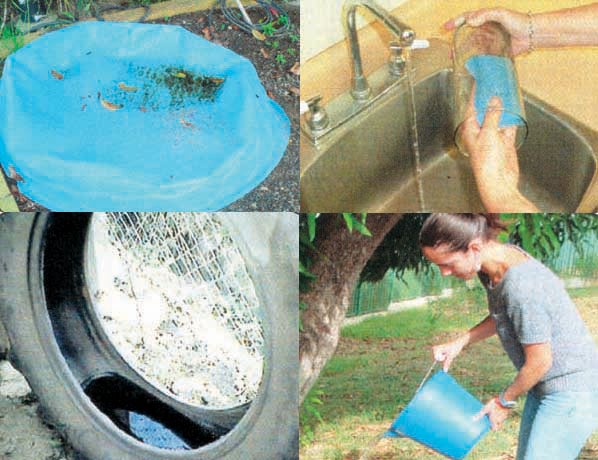Preventative care recommended to prevent spread of Zika virus
Published 9:07 am Thursday, May 5, 2016

The Centers for Disease Control and Prevention recommend a variety of preventive measures to eliminated breeding grounds for mosquitos as a means of combating the spread of Zika virus.
According to Tennessee Department of Health officials, there have only been two confirmed cases of the mosquito-borne Zika virus in Tennessee. However, as mosquito season approaches, they recommend a number of preventative measures to ensure that number doesn’t increase.
Only two species of mosquitoes can carry the virus, explained David Kirschke, Regional Medical Director of the Tennessee Department of Health.
“We don’t know how abundant they are here,” he said.
All the confirmed cases in the United States, which Kirschke said are slightly more than 450, have been the result of someone traveling out of country and returning infected. He said an infected person can be bitten by a mosquito which can then transmit the disease to another person.
“If you travel out of the country, it is best to stay away from mosquitoes for at least three weeks,” Kirschke advised.
He said 80 percent of those infected do not show symptoms, but if pregnant women or anyone showing symptoms after travel to an infected area wants to be tested, they can do so at their Health Department.
Kirschke said they do not know how likely widespread transmission could be, but that low cost or no cost preventative measures could make a significant impact.
“If someone gets infected, which is most likely after travel, and then gets bitten by another mosquito, that mosquito could transmit the disease, so we want to reduce the numbers of mosquitoes overall,” Kirschke said.
Elizabethton City Manager Jerome Kitchens said the city is already implementing the use of larvicides, and Kirschke said individuals are encouraged to do so as well.
“It is safe to use larvicide, including in ponds and places where livestock drink,” said Kirschke.
He said spraying of pesticides by the city or individuals is not recommended, as it only kills adults on contact and is ineffective at eliminating breeding populations. Mosquitoes lay hundreds of eggs in standing water along the edge of a variety of containers, even bottle caps laying outside. This is why Kirschke said it is so important to remove trash and to empty and clean anything containing standing water. Where that is not possible, he recommended the use of larvicide.
Around the home, the Health Department recommends eliminating standing water by:
• Placing plants in soil, not water
• Draining water from pools when not in use
• Recycling used tires or keeping them protected from rain
• Draining and dumping any standing water
• Scrubbing vases and containers to remove mosquito eggs
• Keeping rain barrels covered tightly
• Emptying standing water from fountains and bird baths
• Keeping septic tanks sealed
• Installing or repairing window and door screens
Kitchens said these steps can not only reduce the numbers of mosquitoes that can transmit Zika virus, but it can also have additional benefits, like reducing the number of mosquitoes in general and cleaning up littered areas of the city.
“This is not because it’s here and spreading, but because it could spread, and by doing these things, we can limit that possibility and reduce nuisance mosquitoes,” Kitchens said.
For those that plan to travel, the Department of Health recommends sufficient use of personal protection like mosquito repellent with deet or oil of eucalyptus on skin or clothing and permethrin on clothing. Other recommendations include staying in places with screened windows and mosquito nets and covering up by wearing long pants and shirts.
According to the Centers for Disease Control and Prevention (CDC), Zika can be passed from a pregnant woman to her fetus, which is linked to birth defects. It is spread mostly by the bite of an infected mosquito, which is an aggressive daytime biter. There has been no local transmission of Zika in the continental US, according to CDC. There is no vaccine to prevent or medicine to treat Zika.
In addition, it can be spread sexually by a man to his sex partners. For this reason, Kirshke advised those having sex after travel to an infected area use protection or abstain.
Zika symptoms include fever, rash, joint pain and red eyes, though most do not show symptoms.
The CDC regularly updates a website with infected areas, and it also has maps to show higher risk areas for potential transmission, such as densely travelled cities in the southern US with more of the species of mosquitoes that can carry the virus.
To access that website for more information about travel notices, advisable practices for prevention, or more information on Zika virus, visit www.cdc.gov/zika.




